ClimACT holds town hall, invites board of trustees
December 9, 2021
ClimACT held a town hall Dec. 3 to discuss local environmental and social issues with Boone community members.
App State alumna and ClimACT member Hannah Cullen said the group chose a town hall to foster a space for community members, faculty and students to discuss ways for App State to help meet community needs.
The goal of the town hall was to discuss solutions to the problems identified by ClimACT such as, affordable housing, unsustainable growth and the role of the university.
The group, made up mostly of students, invited board of trustees members to the town hall over email and attended the BOT meeting that morning, where they handed out physical invites and held climate action flyers. The town hall took place the same day as a BOT meeting at 9 a.m.
BOT chair Kimberly Shepherd addressed ClimACT during the Dec. 3 meeting. Shepherd responded to ClimACT’s invitation to the town hall meeting by telling them that if they “wish to move from activism to action” they should bring their concerns to Lee Ball, the university’s chief sustainability officer, rather than directly to trustee members.
ClimACT members also attended the Sept. 24 BOT meeting, and two members were asked to leave after interrupting the meeting. The group led a march through campus afterward in light of a global climate strike that day.
“It’s important to note that the university’s Board of Trustees does not have the authority to make decisions regarding the university’s climate action plan or the adoption of policies applicable to the control and supervision of the university’s electric power plant, New River Light & Power. That authority lies with Chancellor Everts,” App State media relations specialist Anna Oakes said to The Appalachian Sept. 30.
The BOT was supportive of ClimACT’s mission during the 9 a.m. meeting but redirected them to Ball, according to ClimACT member Sarah Sandreuter.
“But we need to meet with the sustainability officer instead of trying to meet with them. But we considered it a win because they addressed us on that large of a scale,” Sandreuter said.
ClimACT wanted BOT members to attend the town hall so that they could discuss the university’s role in ClimACT’s mission.
“We see App State as a neighbor and think there’s opportunity for communication, and there should absolutely be communication and more incorporation of community members’ needs into the school as it continues to grow,” Cullen said.
Cullen said despite the different wants and needs of the community, many issues in Boone intersect and everyone can “meet at a similar point and see each other.”
Bailey Gardin, student body president and BOT member, attended the town hall. As part of his responsibilities as president, Gardin serves on the BOT and holds the same power as all other members.
“I feel like it’s my responsibility to listen to the concerns of students, faculty and staff members you know work strategically with my team to see the best way to advocate for them,” Gardin said. “And to make sure their voices are being amplified to the highest level and to make sure that administrations hearing them.”
Gardin said he hasn’t spoken with the rest of BOT yet but plans to discuss ClimACT’s concerns with the board in the near future.
“I didn’t really go there to be a voice. I just really went there in the capacity to just listen,” Gardin said.
At the end of the meeting, ClimACT members presented the solutions created during the town hall, and many of the proposed solutions involved the BOT. Members were in support of rent caps, a democratization of BOT, building more affordable housing and more transparency in university spending.
Sandreuter said ClimACT wanted BOT members to be a part of the conversation.
“As decision makers and as people in places of power, they should be aware of community concerns. They should be a part of that discussion. They should be listening,” Sandreuter said. “And it would give them a chance to explain why things are the way that they are.”
Many BOT members said they couldn’t attend the town hall because they were going to the football game Dec. 4 and had to board flights Dec. 3, according to Sandreuter.
“You could say what you want about prioritization, but yeah, so they had other obligations, and if they didn’t have other obligations, I guess they just weren’t interested,” Sandreuter said.
Boone Town Council member Dalton George attended the town hall and said ClimACT is a space for “activism.”
George said the town hall was a good way to start working toward solutions for community issues that can’t be solved overnight.
“And while some of the solutions may be harder to implement than others,” George said. “I think just having that dialogue really is half the battle, and getting all of those actors in the room with that kind of wide array of backgrounds and perspectives is definitely a start.”
A previous version of this story included incorrect information regarding BOT member attendance at the town hall. This has been corrected.


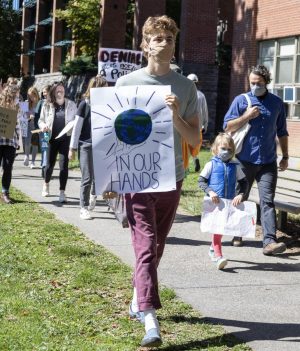
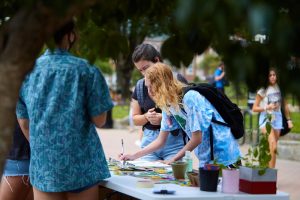
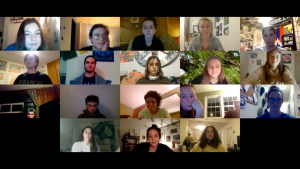
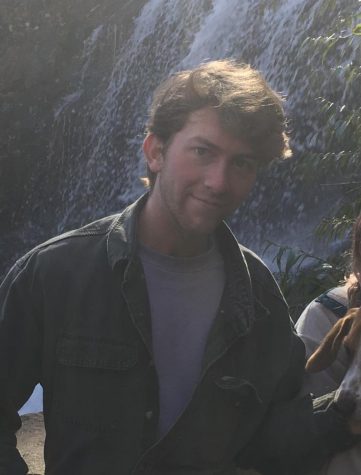
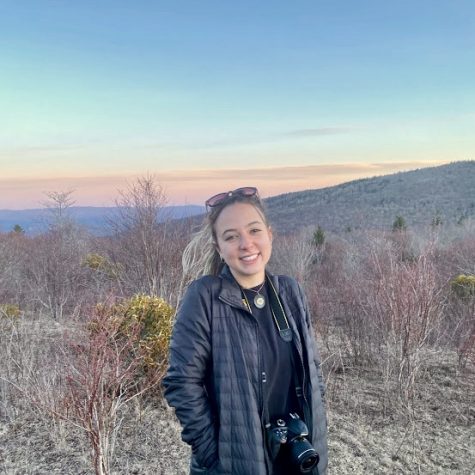








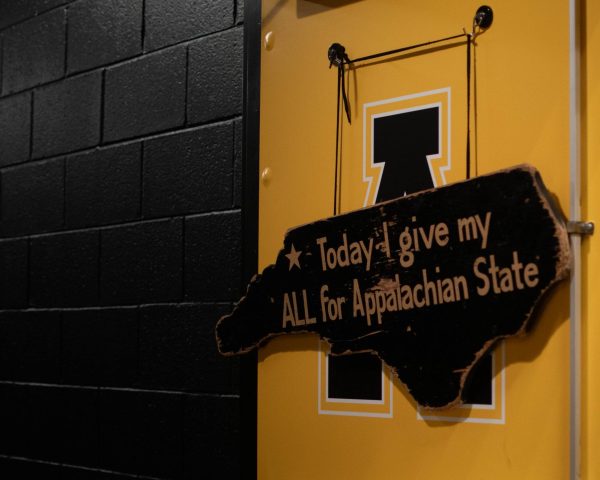


MuChao • Dec 10, 2021 at 6:10 am
““It’s important to note that the university’s Board of Trustees does not have the authority to make decisions regarding the university’s climate action plan or the adoption of policies applicable to the control and supervision of the university’s electric power plant, New River Light & Power. That authority lies with Chancellor Everts,” App State media relations specialist Anna Oakes said to The Appalachian Sept. 30. ”
And here we can see a PR person in their natural habitat, spinning BS and completely missing they point in their poor attempt to deflect responsibility away from the parties that they’ve sold their soul to.
Who do you think influences the Chancellor and her decision making processes? Who are (essentially) the group of folks that play a major role in determining the future of App’s Chancellor and whether she’s gonna keep working here?
THE BOT. And considering that the Chancellor REFUSES to engage with students, this is just about the only avenue ClimACT has. I would love for Anna here to explain the Chancellor’s repeated refusal to engage with students (including ClimACT), faculty, or staff over important issues. Beyond her desire to meet in “small-groups” (you know, so she can control narratives, mitigate damage, and avoid actually having to be a leader.)
So ClimACT is 100% on point going to the BOT. In fact, the only reason that they’re getting such push back on their actions, is because they’re scaring the admins and encroaching on their “sacred ground.” Good! Keep it up!!
And of course no members joined the 5pm meeting. A group of super-wealthy donors who don’t know the first thing about higher education, but have the sheer audacity to act like they do. They’re basically just a Higher Ed Admin LARPing group that, unfortunately, has actually been given power. They’re a pox on the university quite frankly.